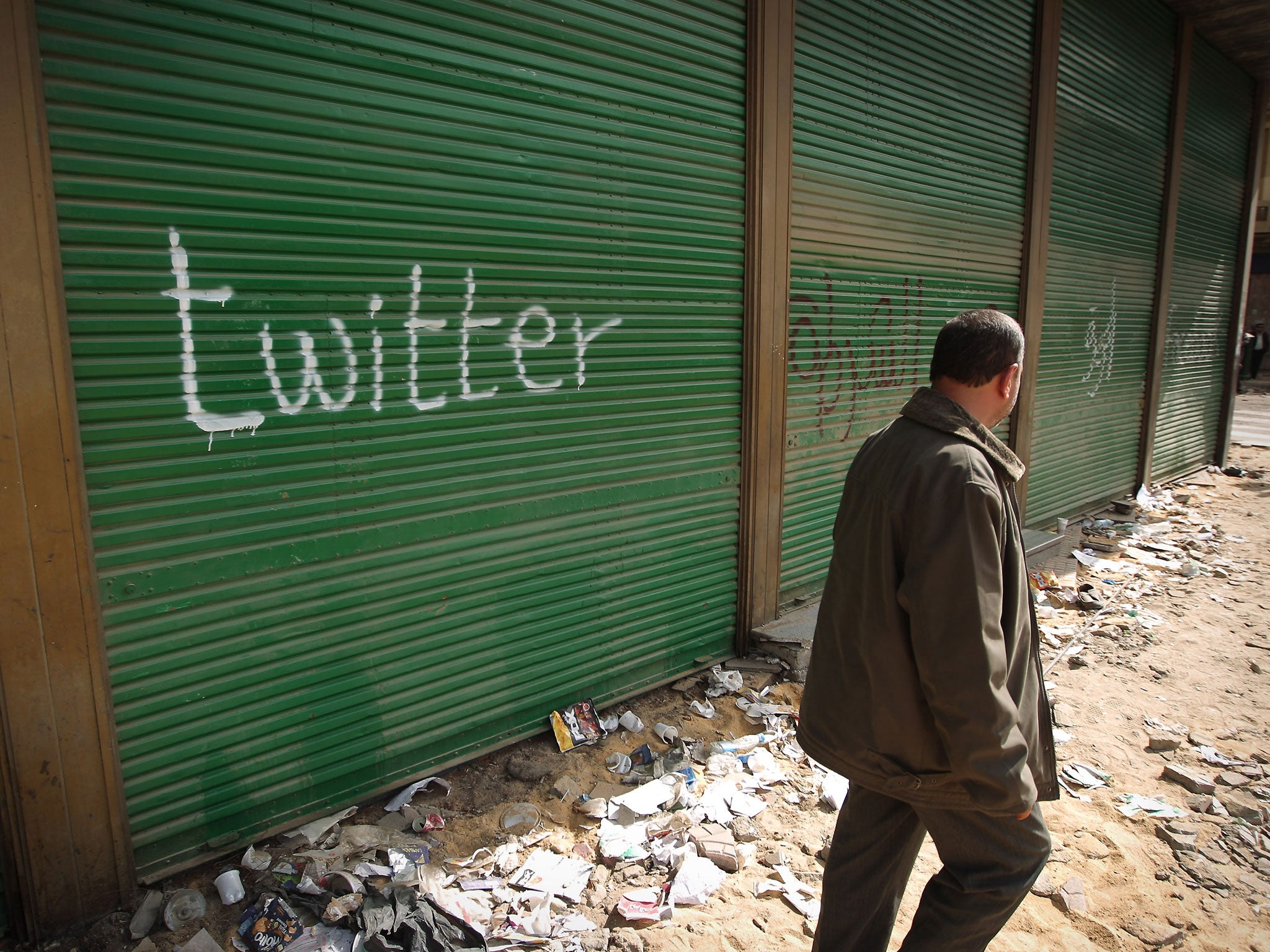Turn Twitter into a business? It always has been
Whether you think it is the global news service of the future or the biggest procrastination tool ever invented, it is now, inevitably, part of 21st-century life

Who knew that hashtag puns, pictures of Starbucks cups with wrongly spelt names and terse outrage could be worth so much? To be precise, $10bn, if early reports about Twitter’s planned flotation on the stock market are to be believed.
On Thursday at 2pm, San Francisco time, Twitter made its first steps towards going public. It did so, of course, with a tweet: “We’ve confidentially submitted an S-1 to the SEC for a planned IPO. This tweet does not constitute an offer of any securities for sale.” Out it went to the 23.6 million people who follow Twitter on Twitter, and to the followers of the 13,066 people (and counting) who retweeted it. It topped news bulletins. Bloggers explained why this was the most anticipated flotation in tech history. Newspapers redrew their front pages. And, in just 135 characters, Twitter proved its power and its reach. Its worth? That’s #tbc.
Since Twitter began on 21 March 2006, with a tweet from its executive chairman Jack Dorsey – “just setting up my twttr” – 430 billion tweets have been sent. And only about 429 billion of them were about Justin Bieber or Miley Cyrus. Its growth is astonishing – up to 200 million users today. Whether you think it is the global news service of the future or the biggest procrastination tool ever invented, it is now, inevitably, part of 21st-century life.
You do not even need to have your own account: what happens on Twitter rarely stays on Twitter. News agendas are, for better or worse, shaped by its 140-character missives – minute-by-minute bulletins from Tahrir Square, Sally Bercow’s *innocent face*, the announcement of Beyoncé’s pregnancy.
It is also, like a lot of things to do with computers and smartphones, a playground for the profoundly silly. Ed Miliband typing “Blackbusters” instead of “Blockbusters”, owls in hats, Ed Balls typing his own name, cats in boxes, the editor of Newsnight typing “boring snoring”, otters in coats – these are things that should not take up as many minutes as they do, but Twitter has harnessed the human will to waste time with spectacular success. On Thursday, it followed its bombshell with a second tweet which said, simply: “Now, back to work.” To which I, and 200 million others, said: “Fat chance, Jack”.
At some point, though, the cosy sharing free-for-all had to stop. And Twitter – like Facebook, LinkedIn and Zynga before it – is moving from chummy network to corporate concern. Its investors want their money back. How much they will get is a matter for excitable speculation, but that $10bn figure is all the more extraordinary for the fact that no one really knows how much money Twitter makes, or how it will go about making more. The fact that it has filed for an IPO confidentially means it must have revenues of less than $1bn. The research firm eMarketer has projected its sales for this year at $583m.
However much it makes, Twitter is and always has been a business. It is not a global charity for lonely people with time to kill. Dorsey, Zuckerberg and Co might pad around their open-plan offices in flip-flops, playing ping-pong, and thought-storming in the rooftop allotment, but underneath their hoodies, pinstripes lurk. Or at least the pinstriped types are never far away, whispering buzzwords like “monetise” and “target”. Start-ups can’t stay on the starting blocks for ever.
Twitter has been preparing for some time. Earlier this week, it bought MoPub, a mobile advertising company, and before that, Bluefin, a firm which allows marketers to message those tweeting about certain TV programmes. It clearly believes the money is going to come from targeted advertising. We, and the information we share, are its golden goose.
What does all of this mean for the average user? Will Twitter become less friendly forum and more marketplace? Already there are pop-up “sponsored tweets” from drinks companies and airlines, which insinuate themselves into one’s feed somewhere between Robert Peston and Rihanna, forcing the eye to scan them. Add in Bluefin’s dastardly ways and soon we’ll all be getting to the end of The Great British Bake Off having subliminally bought an electric whisk, a set of cake tins and five bags of flour. Or will we? Just as Twitter has always been a business, it has always been used as a marketing tool. Seven out of the top 10 accounts on the site belong to popstars like Bieber and Katy Perry – all of whom have probably sold far more records and tickets via the site than they have made friends. It has always been a marketplace.
What it means for users is irrelevant in any case – unless they decide to buy shares. Thanks to Twitter’s chatty corporatese – its cute bluebird logo, the way it allows everyone to blather on in the same democratic fashion – users imagine they have ownership over the site. And yet it costs nothing to use. To enter one’s password is to enter a fiendish, cashless pact: post a picture of your wedding and deal with the fertility treatment adverts that inevitably follow. We use social networks and they use us.
Perhaps, like Spotify, Twitter will start to charge for a premium service, free from advertising. Given that most users expect free access and are already resigned to pop-ups as a necessary evil, the take-up would probably be minimal. So what of the future? A lot of carping about ads and, in time, the birth of another social network. And then the cycle from friend-making to money-making can begin again.
Join our commenting forum
Join thought-provoking conversations, follow other Independent readers and see their replies
Comments
Bookmark popover
Removed from bookmarks